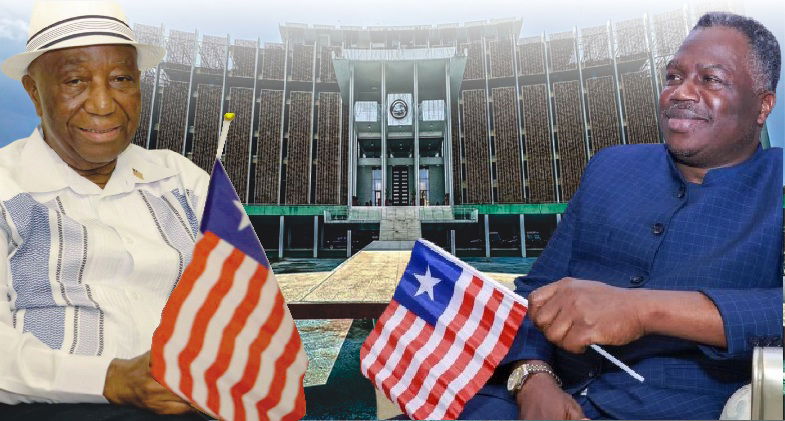Under Boakai-Koung Administration:“Corruption Levels Decline for the First Time” --CENTAL Report Reveals
For the first time in many years, Liberia has recorded a decline in corruption levels, according to the latest State of Corruption Report (SCORE) released by the Center for Transparency and Accountability in Liberia (CENTAL). The report credits the early anti-corruption efforts of the Boakai-Koung administration for the positive shift in public sentiment, signaling cautious optimism for the country’s fight against corruption. According to CENTAL’s findings, 83 percent of Liberians now believe that corruption remains high in the country a figure that, while still alarming, reflects a notable 7-percentage point decrease from 90 percent in 2023. The data marks a significant milestone for a nation long plagued by systemic corruption, and underscores the beginning of a change in trajectory under President Joseph Nyuma Boakai and Vice President Jeremiah Koung. “This is not yet a victory lap, but it’s a step in the right direction,” said Daniel T. Korvah, Executive Director of Center for Political and Policy Studies In Liberia (CPPSL). “This decrease, though modest, suggests that the government’s anti-corruption messages and early reforms are beginning to resonate with the public.”
While the overall perception remains high, the 7-percent drop represents a meaningful shift. Additionally, 14 percent of respondents now consider the level of corruption to be moderate, while 3 percent view it as low. These numbers indicate that a portion of the population is beginning to see improvements in governance, transparency, and accountability. The report also highlights regional disparities in corruption perception and behavior. When asked whether they had paid a bribe during the reporting period, 26 percent of respondents said yes down from 34 percent in the previous year. Counties with the highest incidence of reported bribery include Gbarpolu, Bomi, Grand Cape Mount, and Grand Bassa. Meanwhile, Margibi, Montserrado, and Bong counties reported the lowest ratio of bribe payers.

“These numbers suggest that while national policy changes are starting to have an effect, the implementation and impact vary widely across the country,” said a CPPSL analyst. “Local leadership, community engagement, and institutional responsiveness play key roles in how citizens perceive progress.” Political pundits have responded to the report with cautious praise for the Boakai-Koung administration, which took office in January 2024 with a pledge to clean up government and restore public trust. Measures taken so far include audits of key ministries, the reactivation of dormant anti-corruption institutions, and increased support for the Liberia Anti-Corruption Commission (LACC). “Even a 0.5 percent reduction in corruption could have a meaningful impact on the lives of ordinary Liberians, so a 7 percent drop is not just statistically significant it’s morally and economically important,” said political commentator Samuel B. Norris. “It suggests that the administration’s policies may be taking root.” Despite this progress, both the administration and CENTAL acknowledge that much more work remains. The report notes that while perception has improved slightly, corruption remains deeply embedded in public institutions, service delivery, and procurement processes.
Transparency in resource management and justice sector reforms are areas that require further action. Speaking on a local talk show, Unity Party official Mo Ali welcomed the report and reaffirmed the administration’s commitment to clean governance. “We are encouraged by the findings of CENTAL’s survey, but we will not be satisfied until the perception and the reality of corruption in Liberia are both brought to acceptable levels,” Ali said. “This report is both a validation and a challenge bone we intend to meet head-on.” While Liberia is still far from overcoming its longstanding battle with corruption, the CENTAL report offers a rare glimpse of hope. The 7-percent drop in perceived corruption under the Boakai-Koung administration provides both a foundation to build upon and a signal to the international community that Liberia may be turning the corner. “Perception is not everything, but it shapes how citizens engage with their government,” said Norris. “This report shows that when leadership takes integrity seriously, the people take notice.” For the Liberian people, who have long borne the brunt of corrupt practices in both public and private sectors, the hope is that this is not just a momentary dip but the beginning of a sustained transformation.


